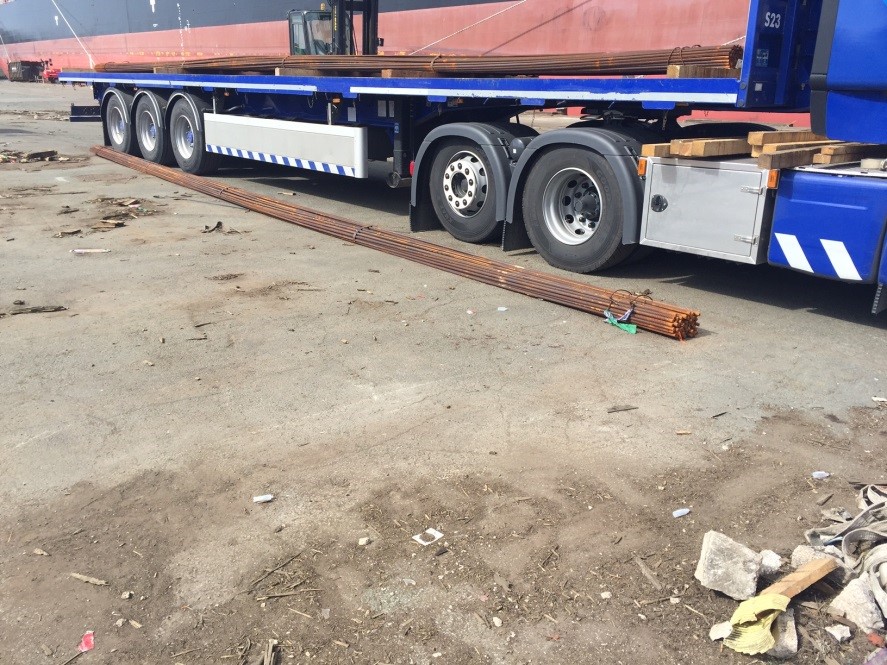Port operator sentenced after worker seriously injured during loading operation
A Liverpool port operating company has been sentenced after a worker was struck by a load falling from two fork lift trucks (FLTs) at the Port of Liverpool in Seaforth.
Liverpool Magistrates’ Court heard that on 28 May 2015, three agency workers performing work for the Mersey Docks and Harbour Company were loading bundles of rebar onto HGV trailers for onward transfer. The injured employee was acting as banksman whilst his two colleagues were operating their FLTs as part of a tandem lift manoeuvre. During the loading procedure a single bundle of rebar weighing 1,924 kg, suspended on the forks of the two trucks, was struck by the reversing HGV’s headboard causing it to fall onto the employee stood on the far side by the HGV’s cab.


Following the incident, the operative sustained multiple fractures, lacerations, scarring and abrasion, ligament reconstruction to his left knee and has undergone four operations which resulted in the amputation of two toes of his left foot. He has been unable to return to work since the incident.
An investigation by the Health and Safety Executive (HSE) found no suitable risk assessment relating to the hazards arising from loading bundles of rebar onto reversing flatbed trailers had been carried out. The tandem FLT lifting operation was also not properly planned, supervised or carried out in a safe manner.
The Mersey Docks and Harbour Company Limited of Maritime Centre, Port of Liverpool pleaded guilty to breaching Section 3 (1) of the Health and Safety at Work etc. Act 1974 and was fined £300,000 and ordered to pay costs of £7,593.55.
After the hearing HSE inspector Rohan Lye said: “Those in control of work have a responsibility to ensure they provide safe methods of working and a safe working environment. If suitable controls had been in place the serious physical injuries sustained by this worker could easily have been prevented.”
Notes to Editors:
- The Health and Safety Executive (HSE) is Britain’s national regulator for workplace health and safety. We prevent work-related death, injury and ill health through regulatory actions that range from influencing behaviours across whole industry sectors through to targeted interventions on individual businesses. These activities are supported by globally recognised scientific expertise. www.hse.gov.uk
- More about the legislation referred to in this case can be found at: www.legislation.gov.uk/
- HSE news releases are available at http://press.hse.gov.uk
The post Port operator sentenced after worker seriously injured during loading operation appeared first on HSE Media Centre.


